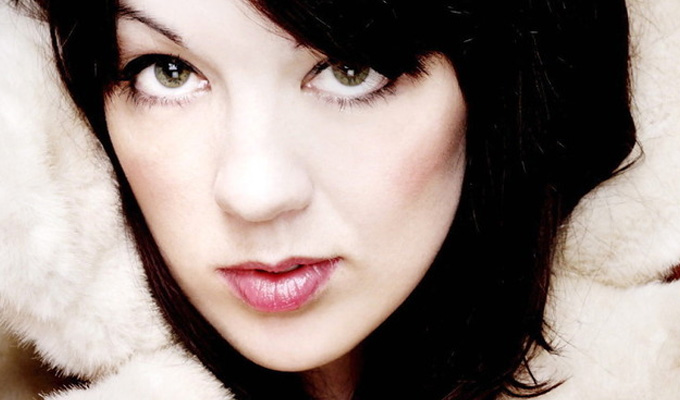Written by former stand-up Danielle Ward, BBC Three’s new sitcom Daddy Issues centres on Gemma - a messy, relatable, twentysomething who enjoys a bit of casual sex and doesn’t take life too seriously. At last! A break for the sort of people so woefully underrepresented in TV comedy…
Okay, initial eye-rolls aside, my fears of déjà vu were soon eased by the excellent Aimee Lou Wood, who utilises her offbeat charm to elevate this overly familiar archetype. Co-star David Morrissey delivers a similarly stellar performance which props the show up above well-trodden ground.
Morrissey plays Gemma’s distant but lovable father Malcolm. Divorced and lonely, he plasters a smile on his face to hide blatant despair, but when Gemma discovers she’s pregnant, he stumbles upon an opportunity to step up and atone for his years of neglect.
The chemistry between Wood and Morrissey is electric from the off and they are both clearly on the same page when it comes to drawing the best comedy from their odd-couple dynamic.
Ward’s experience as a joke writer also comes into play here, with her honed cadence evident from a script that’s filled with blunt and immediate quips. A couple of standouts include a prison guard learning of Gemma’s pregnancy and saying: ‘Congratulations, but I’m still going to need to see your arsehole,’ and Malcolm’s superb confusion over jacket potatoes, ‘They’re special potatoes, aren’t they? They’re covered in like… leather? Well, not leather…’
Ward is at her best with quick-fire repartee, but still finds emotional depth in moments shared between Gemma and Malcolm. These two characters are so strong, you feel as if every scene in which they are apart is a waste.
I found myself wondering if Daddy Issues could have benefited from a more stripped-back approach, echoing Stefan Golaszewski’s Him and Her or Mum, following these two characters' interactions in a more restricted setting that plays out in real time.
Director Catherine Morshead also seems to have aimed for a comedy-drama aesthetic, with a realistic tone, and this is sometimes at odds with the source material. There were moments where I felt certain jokes were probably funnier on the page than the screen.
That’s the problem with grounding a sitcom with a sense of realism, you inevitably lose face when you stretch these boundaries for comic effect. You can’t aim for prestige visuals and natural pacing and expect to get away with sudden zany sequences such as Morrissey attempting to engage in banter with friends through a misjudged ‘foot vampire’ skit.
This is also why I’m less forgiving when it comes to certain scenes in this episode that feel as if they’ve been plucked from a list of scenarios that only happen in fiction, for example Gemma having sex in an aeroplane toilet or Gemma meeting a handsome stranger that offers to buy her coffee when she loses her card.
Just to be nit-picky on the aeroplane scene for a sec - surely a stronger comic instinct would tap into the reality of this scenario? I mean, two people somehow managing to sneak - and fit?! - into a Ryanair loo and then without detection, shag each other with just a paper-thin wall between them and an irritable queue of nine-pints-deep stags and dead-behind-the-eyes parents consoling screaming children? That’s something I’d like to see.
But instead, the pair do the deed with ease, in what presumably must have been one of the toilet facilities on Air Force One - the only comedy found in an implication that Gemma usually keeps a condom in her sock.
Daddy Issues may not stick its landing, but it undoubtedly takes flight. There’s still a lot to love here, particularly if the central relationship takes a greater hold of the show as it progresses. Ward’s writing, if a little inconsistent, shows promise for future episodes – but ultimately, it's Wood and Morrissey who will make viewers return.
Thanks for reading. If you find Chortle’s coverage of the comedy scene useful or interesting, please consider supporting us with a monthly or one-off ko-fi donation.
Any money you contribute will directly fund more reviews, interviews and features – the sort of in-depth coverage that is increasingly difficult to fund from ever-squeezed advertising income, but which we think the UK’s vibrant comedy scene deserves.

